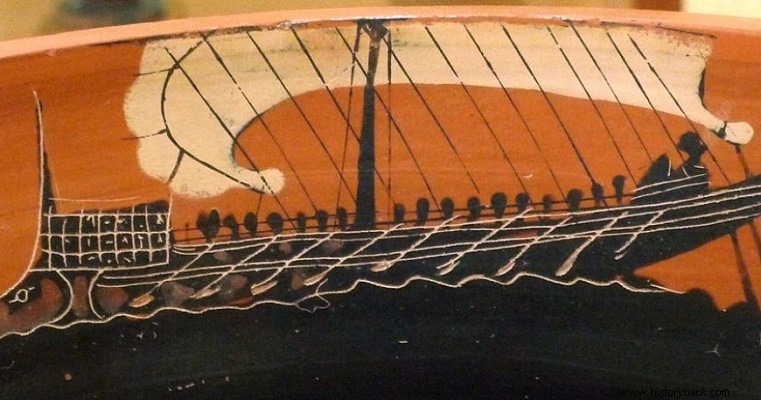
Alalia of Corsica, today's Aleria, was a Greek city founded by settlers from Phocaea in Asia Minor during the Second Greek Colonization. The Phocaeans who had founded Phocaea were settlers from Phocis and Athens. The Phocaeans had also founded other cities in the wider area of the Italian and French coasts, the most important being Marseilles.
Soon the Phocaeans took control of the trade in the region and gradually found themselves facing the Etruscans and Phoenicians Carthaginians. Trade competition created hostilities. Alalia was founded around 562 BC. about 40 years after the founding of Marseilles.
When the Persians occupied the metropolis of Phocaea in Asia Minor, many of its inhabitants settled in distant Alalia. Then, in 540 BC they also founded the city of Elea in Campania, Italy. In this way, a whole network of focal cities was created in the region.
Etruscans and Carthaginians saw the threat and decided to join forces against the Greeks. The two allies assembled a fleet of at least 120 ships, pentagons (ships with 50 oars), as reported. The Phocaeans had only 60 ships of five-masted ships and perhaps a few biremes. The crucial naval battle took place in all probability in 535 BC. Some sources give other dates between 540 and 535 BC
There aren't many details about the naval battle. It only appears that it was carried out with ferocity and fanaticism. According to Herodotus the Phocaeans fought like lions despite the superiority of the enemy. Herodotus also mentions that the Phocaeans for the first time in this naval battle used the brass piston as the main weapon of their ships as well as the tactics of the furniture and the diaplo which were later perfected by the Greeks against the Persians in the Medica and, unfortunately , among themselves.
In the fierce conflict that followed the Phocaeans, beyond all reason, won, apparently thanks to the use of their "secret" weapon, the piston. However, they themselves lost 2/3 of their ships while the rest had also suffered significant damage. So they decided to leave Corsica, taking refuge in Rigio.
The fact that the naval battle was fought with excessive ferocity is also evidenced by the fact that the Etruscans stoned to death all the Greek prisoners they captured . The Carthaginians sold them as slaves. The victory of the Greeks proved to be Pyrrhic. However, the losers of Alalia were defeated again later.
The Carthaginians suffered two humiliating defeats at the hands of the Phocaeans of Marseilles, while the Etruscans were crushed by the Greeks of Lower Italy when they attempted an attack. On the other hand, the Carthaginians prevented Greek colonization attempts in North Africa.
